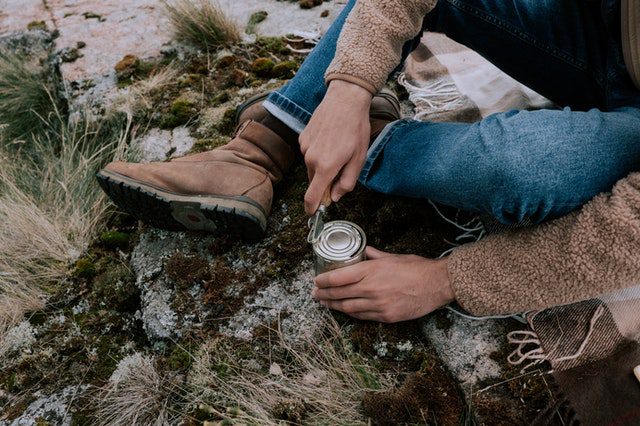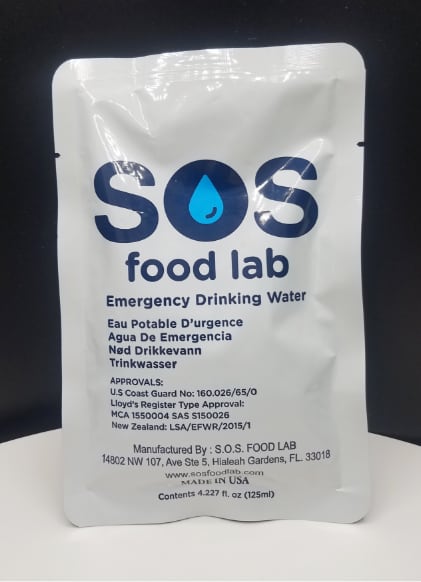Emergency situations where you are cut off from access to food, water, and emergency services are rare, but they can happen. For example, you might be driving on a remote road, and your car dies, and no one is around.
If there is a natural disaster such as flooding or a blizzard, you could be stuck in place for days or weeks. Maybe you are camping in the wilderness and get lost or are stuck in bad weather conditions.
The possibilities, while remote, do exist.
Our body needs food and water to survive. Food gives our body energy, while water keeps us hydrated and functioning. Our bodily systems require water to function properly, making water more critical than food.
In fact, we can go weeks without food by conserving energy, but we can only survive two to four days without water.

Many variables determine how long you can go without food, but water is absolutely necessary.
Preparing for Emergency Situations
Everyone should prepare their house and car in the event of a natural disaster that shuts your power off or keeps you isolated for a while. Having emergency food and water with a long shelf life is essential for your well-being and peace of mind.
By preparing now for such an event, you can keep yourself, and your family stocked with enough food and water for weeks if necessary. Once you are in an emergency, you have few options.
Items like canned goods, pantry staples, power bars, and other non-perishables can be essential. Keep your pantry fully stocked, especially going into hurricane or blizzard season. You may not be able to drive to the store, or all areas may be out of power. Always make sure to check expiration dates and restock when necessary.
When you prepare an emergency food supply, make sure you choose foods that you and your family know and love, it’s not the best time to find out you don’t like all the cans of tuna you bought on sale. Eating familiar comfort food can help lighten the mood during a stressful situation. Try to find foods that are high in calories and contain nutrition. Since the power and water might be out, try to find foods that can be eaten as is.
If you have canned foods, make sure you invest in a manual can opener since an electric one will not be able to work.

If your power does go out, try to use all the foods in your fridge and freezer by grilling or cooking them. It’s not a bad idea to invest in a grill or camping stove, so you can still cook.
Keep gallons of water on hand, we need at least one gallon of water per person per day, and ideally, you should have enough for two weeks. Remember that you will also need water to sterilize things, cook, clean, and wash wounds, so get more water than you think you could use.
Keep some food and water in your car, in case you get stranded somewhere unexpectedly and need to survive for a few days.
Emergencies are inherently stressful, but you can do your best to survive by keeping your pantry and vehicle supplied with enough necessary items to help you get through any unexpected event.
SOS Food Lab
At SOS Food Lab we carry convenient water pouches as well as ready-to-eat survival food bars FOR ANY AND ALL EMERGENCIES! In fact, all of our water pouches and food bars are packaged to stay fresh for 5 years.
Stay safe—choose SOS Food Lab.

